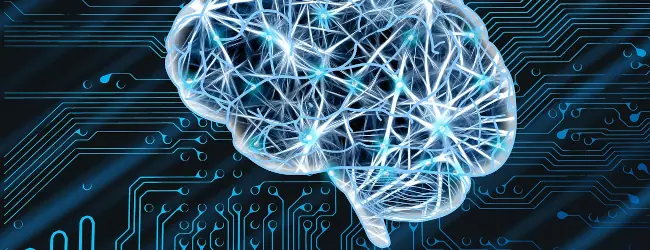We have discussed empathy and logical sense for this month. It seems I already talked enough about this topic, so let’s wrap up today.
How to control our emotions
Sometimes, we want to control our emotions. Many unstoppable feelings often stress us. Examples are anxieties for the future, flashbacks, and ambiguous glooms that are difficult to put into words.
They exhaust us. We want to live feeling refreshed. That is why we want to control our emotions.

However, we sometimes don’t know how to do it.
Developing logical sense would help. It would be more effective than focusing on empathy and many emotional ways of thinking. Today, I will explain why in summary.
Three brain functions
When we feel an emotion and make a logical decision based on it, it disappears.
In our brain, there are three functions to process emotions. They are as follows:
- Logical sense or sociality (consciousness): We consciously decide what to do with the emotion we get from empathy.
- Empathy: It detects the emotional generation and relays it to consciousness. If the body keeps producing the same emotion, it amplifies the emotion and tries to convey it to consciousness again. It continues to intensify until we judge it.
- Emotion-generating brain region: It generates emotions in light of the circumstances and our memories.

That is why if we ignore emotions, they become stronger and trouble us. It is a natural function of empathy. Empathy is not a cause. Avoiding logical decisions is.
Two principles for emotional treatment
From the body’s perspective, all changes are stresses. Emotions are one form of conditional reflex based on past conscious judgments.

It tells us the following two principles:
- If we decide our actions consciously based on rationality, the emotion disappears.
- If we continue to decide on the same action toward the same emotion, we can change the meaning of the emotion.
Let’s look at them below.
How to clear emotions
First, if we decide our actions consciously based on rationality, the emotion disappears. Naming the emotion would help to make it happen.
For example, I felt an ambiguous gloom when I woke up this morning. I was mentally unstable and felt an incomprehensible anxiety and fear.

I first said to the emotion, “Oh, not again. You are the emotion of the habit that seeks anxieties when I get relaxed.”
However, it doesn’t calm down. I thought about what changed these days. Since I had been mentally stable recently, I guessed there could be another factor.
Resolving my emotion
Then, I realized the cause and said, “Your name is temperature fluctuation.”
Since yesterday, the temperature has risen sharply in my area. It changed over 10 degrees Celsius. Spring has come suddenly. That stressed my body. This realization made me decide to rest today.
The moment I concluded, the ambiguous gloom went away. My conscious, rational judgment calmed my empathy.

I experienced similar things several days ago. Its name was ‘overeat.’ I ate too much at dinner the night before. That affected my mind.
From the body’s perspective, all changes are stresses. It includes various factors, even weather.
Deciding our actions consciously and rationally makes the emotion disappear.
How to change the emotion’s meaning
Let’s move on to the second principle, which allows us to control our emotions. If we continue to decide on the same action toward the same emotion, we can change the meaning of the emotion.
For example, I unconsciously did it three summers ago. That summer, I didn’t know what to do with my life. That made me go to an empty beach every day and see the sea.

I was depressed on that beach. Interestingly, it was comfortable for me to feel down. In my heart, I searched for hope and logically continued to reject it.
The experience of regaining myself
One day, after continuing that for about two weeks, I suddenly could not stop crying.
Come to think of it now, that was a natural phenomenon. I changed the meaning of the emotion.
Until then, my hope meant social success, such as becoming a millionaire and famous. Every time I imagined them, my body felt invigorated.

However, that summer, I changed the meaning of hope. I kept convincing myself that pursuing social success was something tiring and disappointing.
The moment the emotion was rewritten, I realized I didn’t have to pursue such hope anymore. In other words, I stopped chasing only one aspect of values. I regained myself at that time.
That is the second point. If we continue to decide on the same action toward the same emotion, we can change the meaning of the emotion.
Two directions of judgments
Our judgments consist of only two directions, as follows:
- Activating the body: Examples are anger, excitement, anxiety, and joy.
- Relaxing the body: Examples are depression, discouragement, and relaxation.
If we want a more peaceful life, it means we need the relaxing side. We intentionally try to be depressed, discouraged, and relaxed. We realize them logically. That would stabilize our minds.

That is why being positive is often pointless. The purpose of happiness is often to live more peacefully if we are empathic and logical.
It is inefficient to obtain relaxation by activating the body and achieving social success. We don’t have to choose such a complicated way. We can directly select the relaxing side.
Conclusion
That is how to control our emotions. Developing logical sense would help us.
It would be more effective than focusing on empathy and many emotional ways of thinking.
This logic might allow you to balance your mind.
Thank you for reading this article. I hope to see you in the next one.


